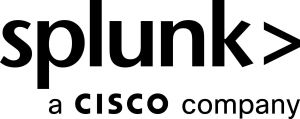Windows Zombie account lockouts
Zombie account lockouts in Windows environments typically happen in two scenarios:
- A disconnected RDP session logged in with an account whose password has been changed.
- A service account password has been changed while a service is still using the old password.
You need an efficient way to track down where the lockout is being generated.
Data required
Procedure
- Verify that you have deployed the Splunk Add-on for Microsoft Windows to the search heads and Splunk Universal Forwarders on the monitored systems. For more information, see About installing Splunk add-ons.
- Run the following search. You can optimize it by specifying an index and adjusting the time range.
source="WinEventLog:Security" (EventCode=540 OR EventCode=4624) NOT (user=*$ OR user="ANONYMOUS LOGON" OR user=SYSTEM OR user=services OR user=Unknown) [search index="wineventlog" EventCode=4740 NOT (user=*$ OR user="ANONYMOUS LOGON" OR user=SYSTEM OR user=services OR user=Unknown) |table user] |stats dc(src_ip) AS Number_logged_hosts, values(src_ip) AS "Logins IPs", values(dvc) AS "Logon Host", count BY user |rename user AS Users, count AS Total_times_logged_in |where Number_logged_hosts>1 |sort -Number_logged_hosts Users
Search explanation
The table provides an explanation of what each part of this search achieves. You can adjust this query based on the specifics of your environment.
| Splunk Search | Explanation |
|---|---|
|
|
Search only Windows event logs. |
|
|
Return successful network or local computer logon events that are not any of the account types shown in parentheses. |
|
|
Search for locked out user accounts that are not any of the account types shown in parentheses. Reduce the result to the single field The exclusions in the parentheses could be varied depending on your environment. |
|
|
Return all the places the users have logged in by their IP address and host name, as well as the number of times users logged in. |
|
|
Rename the fields as shown for better readability. |
|
|
Return only results where the number of times logged in was greater than 1. |
|
|
Sort the results with the largest count first. |
Next steps
The sample results in the following table show a sub-search correlation of accounts that are locked out but also logged in.
| Users | Number_logged_hosts | Logins IPs | Logon Host | Total_times_logged_in |
|---|---|---|---|---|
|
dall_gibbs |
5 |
172.16.120.33 208.90.214.10 65.103.125.65 66.72.53.128 80.200.173.24 |
dc-pla-01 ext-cas-den-01 ext-cas-san-01 |
12 |
|
aa_dev_user |
2 |
172.16.120.141 31.210.180.179 |
dc-pla-01 ext-cas-den-01 |
6 |
|
pete_do |
2 |
172.16.120.94 208.90.214.10 |
dc-pla-01 exch-cas-cup-01 exch-cas-den-01 exch-cas-pla-01 ext-cas-den-01 ext-cas-san-01 |
31 |
A next step would be to run this search as a scheduled report, and, after each run, have the results processed by the admin team to unlock the accounts and force the log outs if necessary. The workflow for scheduling a report is documented here.
Finally, you might be interested in other processes associated with the Investigating user login issues and account lockouts use case.

